Is your teen struggling with OCD? Are their obsessions and compulsions making daily life difficult? This article is for you. Residential OCD treatment can provide much-needed relief.
If you're looking for a comprehensive approach to help your teen overcome OCD and thrive, WayPoint Academy can be the answer.
Or keep reading if you’d like to learn more about teen OCD.
If your family hasn't found long-term relief through conventional OCD treatment methods, WayPoint Academy's residential OCD treatment center may be the answer. Our teen treatment program combines intensive exposure therapy with a supportive and nurturing environment to help your teen conquer OCD and flourish. Here are the top 3 benefits your teen and family will experience at WayPoint Academy:
Here are the top 3 benefits your teen and family will experience at WayPoint Academy:
- Exposure and Response Prevention (ERP) Therapy: The gold standard for OCD treatment, ERP helps teens face their fears and break the cycle of compulsions.
- Individualized Care: Each teen receives a personalized treatment plan based on their unique needs and triggers.
- Co-Occurring Disorder Treatment: WayPoint addresses OCD alongside other conditions like anxiety or depression for a well-rounded approach.
- Experienced Staff: A dedicated team of therapists, psychiatrists, and educators work together to support your teen's recovery.
- Family Involvement: Families learn how to best support their teen through therapy and create a positive home environment.
- Structured Daily Life: Predictable routines and clear expectations help teens feel safe and empowered to manage their OCD.
- Academic Success: Accredited on-site schooling ensures your teen stays on track with their education.
- Social Skills Development: Therapists help teens build healthy relationships and navigate social situations.
- Holistic Wellness: Activities like mindfulness, exercise, and healthy recreation activities promote overall well-being and stress management.
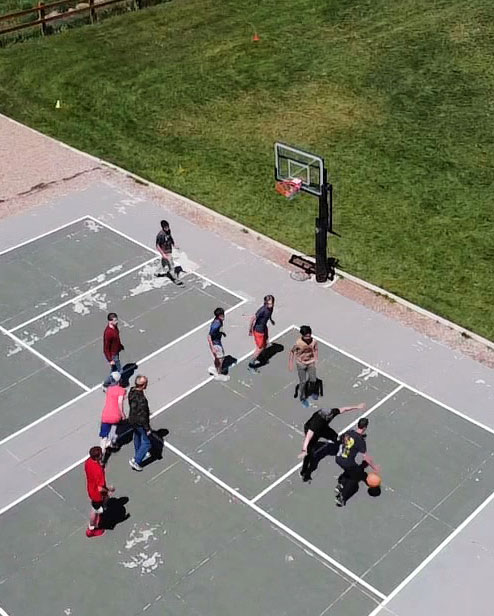
Don't let OCD control your family's future. If your teen is struggling with obsessive-compulsive disorder, WayPoint Academy can help. Our anxiety treatment center provides a comprehensive approach to recovery that equips teens with the tools and support they need to overcome anxiety and succeed. Let us help your teen thrive.
Contact WayPoint Academy today to learn how our OCD treatment program can guide your teen towards a brighter, more fulfilling future.
If you’d like to learn more about teen OCD. This article is meant to be as extensive as possible and will probably include sections that may not apply to your situation. Please use the table of contents to find the information you need.
What is Teen OCD?
Obsessive-compulsive Disorder (OCD) is an anxiety disorder characterized by cycles of intrusive thoughts and ritualistic behaviors. Individuals are burdened with persistent, unwanted apprehensions or anxieties that compel them to engage in compulsory actions designed to fend off the feared occurrence. Even though individuals may acknowledge that their obsessive thoughts lack rationality, attempting to suppress or disregard these obsessions only exacerbates their distress and anxiety.
Consider someone who has an intense fear of contamination by germs. They might feel compelled to excessively wash their hands until they become raw and cracked. No matter how much they clean, concerns about germs continue to resurface, prompting hand washing. This relentless cycle is a defining trait of OCD — it generates profound anguish and disrupts normal everyday life.

Types of OCD
OCD is characterized by a diversity of presentations, each with distinct obsessions and compulsive behaviors. One example is Harm OCD, where the persistent concern about inflicting harm upon oneself or others can lead to constant checks by an affected teenager to confirm no accidental injury has occurred. In cases of Contamination OCD, individuals may harbor an unfounded fear of germs and contaminants, which prompts them to engage in extensive cleaning or hand-washing rituals.
Compulsive concerns regarding symmetry and arrangement are hallmarks of Symmetry and Ordering OCD. Those who suffer from it experience a profound need for objects to be arranged precisely or symmetrically. Checking OCD involves repeated verification actions performed on household items like door locks and appliances as part of a ritualistic search for safety assurance. These examples illustrate just some ways that obsessive-compulsive behaviors manifest.
Additional variants include Scrupulosity (a preoccupation with moral correctness), Homosexual (anxiety over one’s sexual orientation), persistent ruminations/intrusive thoughts, various eating disorders tied to compulsion control issues, alongside other compulsive activities such as Trichotillomania—compulsively pulling out one’s hair—and Excoriation—compulsive skin picking.
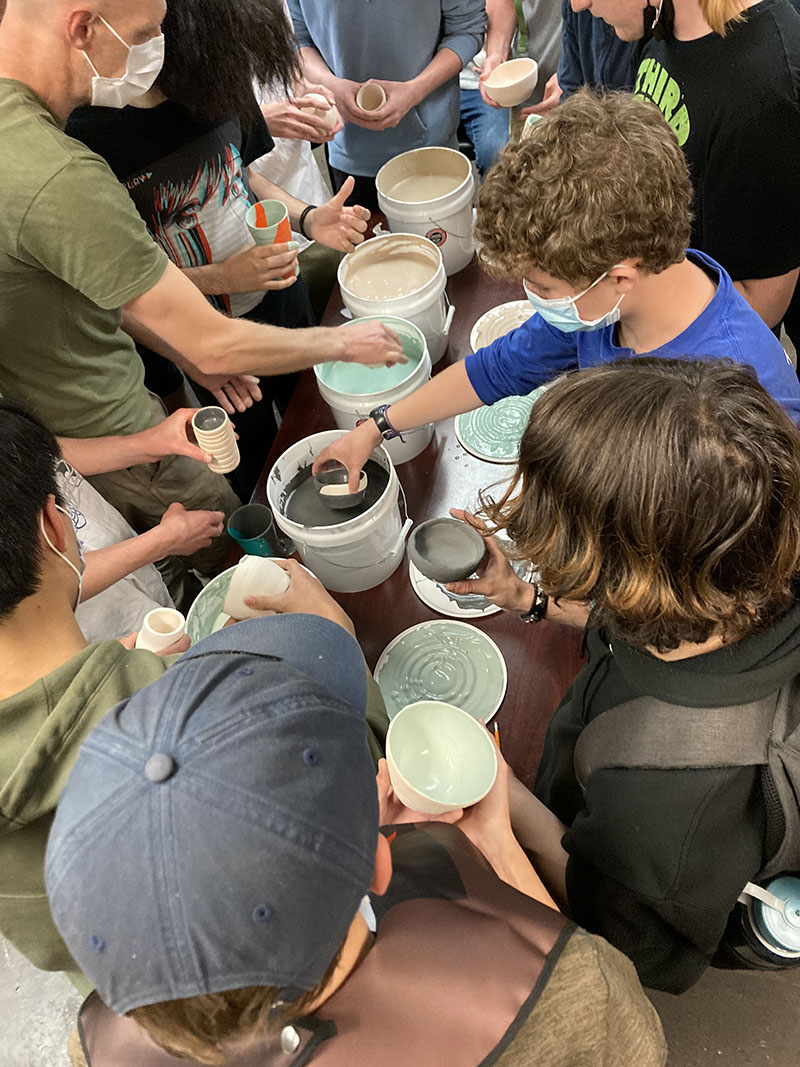

What Causes OCD in Teens?
It is not entirely clear what causes OCD, yet it is thought to stem from both genetic and environmental influences. The potential contributors to the onset of OCD include:
- Genetic links, as indicated by a familial prevalence of the condition
- Alterations in one’s living circumstances or academic setting
- Experiencing significant stressors such as bereavement or parental separation
These elements may initiate the manifestation of OCD during adolescence.
How Common is OCD in Teens? Facts You Need to Know About OCD:
- Experts think that OCD impacts up to 4% of kids and teenagers. Consequently, 1 in every 200 young individuals - roughly 500,000 adolescents in the United States - face difficulties associated with OCD. This figure is comparable to the population of Atlanta, Georgia, or the number of children diagnosed with type 1 diabetes. In an average-sized elementary school, you can expect to find around four or five students dealing with OCD. Similarly, in a medium to large high school, the number could increase to approximately 20 students who are facing the challenges brought about by OCD.
- The World Health Organization (WHO) places OCD in the top ten of the most debilitating medical illnesses in the world.
- Studies have shown that there is an average period of 14 to 17 years between when individuals first become aware of their OCD symptoms and when they finally receive proper treatment. This is primarily due to lack of diagnosis. If you think your teenager suffers from OCD or anxiety, please take our free online anxiety test and find out.
- OCD Age of Onset - The average age at which OCD usually appears is 9–10 years old with approximately 8 in 10 of those developing OCD initiating it by 18 years of age.
It’s important to realize that OCD does not discriminate. It affects people across all ages, ethnicities, races, and socioeconomic statuses without bias.
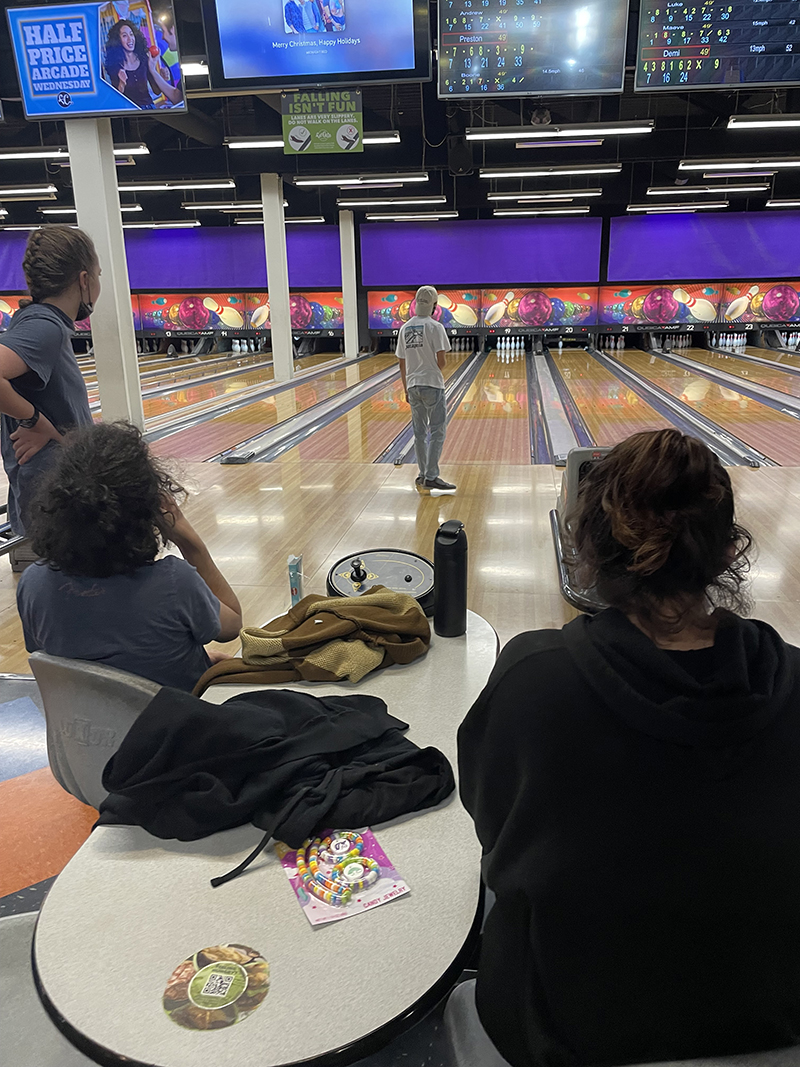
OCD Symptoms in Teens
Teens with OCD experience a range of symptoms that extend beyond an intense focus on tidiness or attention to detail. They may suffer from intrusive and persistent unwanted thoughts, fears, or mental images (obsessions) which lead to feelings of distress. In an attempt to manage these obsessions, they might engage in repetitive actions (compulsions). The typical indicators of OCD in teenagers include:
- An overemphasis on organization, symmetry, or exactness
- Irrational concerns about personal harm or danger to loved ones resulting in obsessive checking routines
- Compulsive washing or cleaning habits that are excessive
- A strong preference for specific arrangements and orderliness
- Accumulation or saving up unnecessary objects
- Repeated utterance of words or phrases
It is crucial to note such behaviors early on and consider professional intervention if needed.

These compulsive behaviors can heavily interrupt the daily routine of adolescents. Teens affected by Obsessive-Compulsive Disorder might struggle with sleep disturbances due to their relentless thoughts at night. Considerable time devoted to acting out compulsive rituals could interfere substantially with academic responsibilities as well as engagement in extracurricular activities like sports.
Since the onset period for this disorder commonly occurs during adolescence into teenage years, it’s imperative for parents, guardians, and educators alike, to be vigilant about recognizing potential signs consistent among youths just as those found within adults who have been diagnosed with this lifelong condition.
How is OCD Diagnosed in Teens?
In the initial phase of diagnosing OCD in teenagers, recognizing the indicators is critical. Guardians and parents might observe that their teenager:
- dedicates an inordinate amount of time to completing school assignments
- encounters difficulties when attempting to leave home
- spends extended periods isolated without a clear explanation
- engages frequently in excessive handwashing or other compulsive behaviors
Due to potential feelings of fear or shame, adolescents may be reluctant to talk about what they are experiencing. It’s crucial for adults to broach these topics with empathy and care.
Following the recognition of symptoms and the expression of concern, a mental health professional with expertise in OCD will administer a psychological assessment. This includes examining whether anxiety or apprehension arises from not adhering to specific routines. A diagnosis is confirmed if obsessions and compulsions interfere significantly with everyday activities and lead to considerable distress for the teenager, based on criteria set out by The Diagnostic and Statistical Manual of Mental Health Disorders (DSM-5).
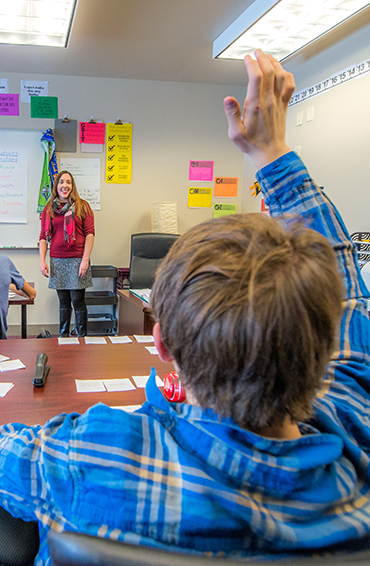

Other Conditions that are Often Confused with OCD
Due to the similarity in symptoms, OCD can be erroneously identified as other mental health conditions, leading to challenges in both diagnosis and treatment. Both Generalized Anxiety Disorder (GAD) and OCD include intense anxiety and worry. GAD typically involves everyday worries like family or academic issues whereas obsessions within OCD tend to be more unusual and unrealistic.
Due to attentional difficulties associated with it, children who have OCD might receive a misdiagnosis of ADHD. Various personality disorders may also present with characteristics similar to those found in individuals with OCD. It is critical for an accurate identification of the disorder that one seeks a comprehensive assessment from a mental health expert skilled in recognizing and creating effective OCD treatment plans.
Living With OCD
OCD can profoundly interrupt and cause turmoil in everyday life, not only for the person living with it but also for their loved ones. The relentless pattern of obsessive thoughts and compulsive behaviors consumes much time, diminishing productivity and active participation in everyday routines. For example, a teenager struggling with OCD might take hours to complete homework due to an overwhelming need for perfection or repeatedly check locks on doors and windows multiple times, causing delays when the family is trying to leave home.
OCD can significantly affect social aspects of a teenager’s life. They may deal with challenges such as:
- Dodging social gatherings or activities so they won’t confront their triggers or conceal their symptoms from friends
- Experiencing loneliness due to withdrawal from social contact
- Intensifying anxiety and distress that arise from coping with OCD
These issues compound the detrimental effects that OCD has on a young individual’s existence.

Long-term Effects of OCD on Teens and Their Families
Neglecting to address Obsessive-Compulsive Disorder can lead to serious, enduring consequences for young people and their loved ones. The relentless onslaught of obsessions coupled with compulsive actions can drastically disrupt a teenager’s ability to function normally, from schooling outcomes and friendships to physical well-being. Without intensive treatment, teens grappling with OCD are at risk of developing additional mental health disorders like depression and generalized anxiety, further disrupting their routine life activities.
The impact of OCD doesn’t stop at the individual. It ripples through their family environment as well. To accommodate the obsessive-compulsive patterns exhibited by the teen, families often have to modify their own daily practices and behaviors. This adaptation may cause heightened tension within familial relationships and incite conflicts in household dynamics. Parents may often find themselves making accommodations for their teens that enable OCD symptoms. Promptly recognizing and addressing OCD is essential — not just for improving life quality for teenagers affected, but also vital in preserving family harmony and functionality.
Common Problems that Arise with Teen OCD
Adolescents grappling with OCD encounter distinct obstacles that disrupt their daily routines. Challenges they may experience include:
- A noticeable dip in academic achievement
- Seeming unfocused, uninterested, or perceived as lethargic
- Obstacles when trying to finish homework or engage in classroom tasks
Their constant battle with obsessions and compulsions is often the root cause of these challenges.
OCD can lead to various detrimental impacts on an adolescent’s existence, such as:
- Erratic sleep patterns which result in persistent tiredness and hinder daytime focus
- Withdrawal from social engagements and evasion of settings that might trigger symptoms
- Heightened anxiety and distress stemming from societal stigma related to OCD
These adverse effects play a significant role in degrading a teenager’s general welfare and life satisfaction.
How to Treat OCD in Teens
Numerous treatment alternatives exist for adolescents struggling with OCD. Options span from outpatient therapy involving routine appointments with a mental health expert to intensive outpatient programs, a partial-hospitalization program, or day treatment. These programs require the teenager to dedicate substantial portions of their day engaging in intensive treatment but still allowing them to return home in the evening.
In instances where OCD symptoms are particularly severe, it might be advised that the teen enroll in an inpatient treatment or residential treatment program. This entails residing at a care facility for an extended duration so they can benefit from more rigorous and holistic obsessive-compulsive disorder treatment strategies.


What types of therapy work for teen OCD?
- Cognitive Behavioral Therapy (CBT), including dialectical behavior therapy, represents additional therapeutic interventions that have shown success in treating OCD. Cognitive behavioral therapies enable teens grappling with Obsessive-Compulsive Disorder to gain insight into how their thoughts affect emotions and behaviors. Subsequently, they are equipped with practical skills designed specifically for managing and mitigating symptoms related directly back to Obsessive-Compulsive Disorder.
- Exposure and Response Prevention (ERP) is considered the gold standard for treating OCD. ERP takes CBT one step further by gradually exposing teens to anxiety-provoking situations in a controlled, therapeutic setting. A treatment modality recognized for its effectiveness against OCD requires individuals to face the triggers of their anxiety while abstaining from the usual compulsive behaviors they perform in an attempt to alleviate their discomfort. The core aim of ERP is to encourage patients to confront these sources of fear without resorting to rituals or habits, ultimately achieving sustained relief from the symptoms associated with OCD.
- Acceptance and Commitment Therapy (ACT) serves as another branch within CBT. Acceptance and Commitment therapy focuses on imparting mindfulness techniques along with acceptance tactics aimed at assisting those suffering through life amid persistent occurrences related again predominantly towards obsessive compulsions—enabling them more freedom so far as daily activities go unrestricted by said affliction’s influence over time spent during any given day’s events.
The Importance of Residential OCD Treatment
In instances of severe OCD where regular outpatient treatment might not suffice, the option of residential OCD treatment becomes extremely beneficial. Such programs are characterized by:
- An intensified level of mental health care
- Increased frequency and access to therapeutic interventions and sessions
- Constant supervision from a dedicated team specializing in teen mental illness
- A nurturing environment that promotes rapid alleviation from intense symptoms
- Assistance in creating individualized coping mechanisms tailored for each patient
Centers designed specifically for providing this type of comprehensive OCD therapy exemplify an integrated approach toward managing the condition.
Our residential program mitigates the intrusive impact that severe OCD has on aspects like personal relationships and school. It establishes structured recovery stages that help patients cultivate self-reliance, strength, and hope—ultimately enhancing their overall quality of life. By merging secure healing environments, and limiting outside variables, with diverse treatments including group support and one-on-one counseling, these centers offer an all-encompassing strategy aimed at effectively controlling OCD symptoms for lasting mental well-being.
Safe and Supportive Environment
OCD treatment centers, such as WayPoint Academy, provide a secure and nurturing environment conducive to the treatment process. These facilities aim to create serene and agreeable surroundings that aid individuals in concentrating on their healing journey by providing features like:
- Safe and homey living spaces
- Therapeutic support from therapists and trained staff
- Homogenous group settings to allow individuals to realize they are not alone in their struggles
To these amenities, the centers also organize recreational activities that allow residents to engage in physical activity and enjoy moments of leisure.
Intensive Therapy and Personalized Care
Within the framework of a residential treatment program, individuals receive concentrated therapeutic attention and specialized care. After an in-depth evaluation, a tailored, exposure-based regimen is crafted for each student. Your family therapist will work with your teen to develop a personalized OCD treatment plan using an Avoidance Hierarchy, Fear Hierarchy, or Fear Ladder. This plan will include a list of situations that your teen finds least to most distressing and will address each scenario accordingly.
The immersive nature of the residential treatment setting significantly contributes to forging robust connections between patients and their dedicated team of healthcare professionals, which in turn boosts the efficacy of their respective treatment plans.
Exposure and Response Prevention (ERP) Therapy
At WayPoint Academy, we know that obsessive-compulsive disorder (OCD) can feel like an insuperable challenge for teens. That's why we've made exposure and response prevention (ERP) therapy a cornerstone of our comprehensive OCD treatment center.
ERP is a highly effective, evidence-based therapy that helps teens overcome the debilitating worry, fear, and avoidance that characterize GAD. By gradually exposing your child to the situations that trigger their anxiety, our skilled clinicians empower them to face their fears head-on.
Here's how ERP works:
- Exposure: We start by identifying the specific scenarios and stimuli that provoke your teen's anxiety, whether it's public speaking, social interactions, or certain sensory experiences. Then, we systematically expose them to these triggers in a controlled, therapeutic setting.
- Response Prevention: During exposure, we prevent your child from engaging in the compulsive behaviors they typically use to cope with or avoid their anxiety, such as excessive checking, counting, or avoidance. This helps break the cycle of anxiety and maladaptive coping.
- Habituation: With each exposure, your teen learns to tolerate their anxiety and eventually habituate to the trigger. They discover that their worst fears don't come true, and that they have the inner strength to manage their worries.
- Cognitive Restructuring: Alongside exposure, our therapists guide your child in challenging the negative thought patterns that fuel their anxiety. They learn to replace catastrophic thinking with more balanced, realistic perspectives.
- Coping Techniques: To further equip your teen, we teach a variety of relaxation strategies, from deep breathing to visualization exercises. These tools empower them to self-soothe in the moment when anxiety strikes.

Through this comprehensive ERP approach, your child will develop the confidence and coping skills to reclaim their life from the grip of generalized anxiety disorder. At WayPoint Academy, our implementation of ERP therapy is tailored specifically to each adolescent's distinctive set of anxieties and personal triggers through carefully designed exposure exercises. Such a customized treatment strategy significantly bolsters the success rate of ERP in providing durable relief from intense anxiety linked with OCD symptoms.
Why Choose WayPoint Academy: A Premier Residential Treatment Center for Teens with OCD
WayPoint Academy has gained recognition as a leading residential treatment center specializing in the treatment of OCD among teenagers. By adopting an individualized treatment approach, particularly with ERP therapy, it provides specialized care to adolescents struggling with severe anxiety and OCD. This unique method is interwoven throughout various aspects of the program—spanning therapeutic sessions, educational activities, and daily residential life—to address the distinct phobias and requirements specific to each young person under their care.
WayPoint Academy recognizes that anxiety disorders often accompany OCD and thus provides specialized treatment methods designed specifically for anxiety-related conditions. These include:
- Separation Anxiety Disorder
- Generalized Anxiety Disorder
- Panic Disorder
- Social Anxiety Disorder
- Specific Phobias
Armed with a wealth of experience, the WayPoint Academy team is prepared to offer personalized treatment tailored to meet the individual challenges faced by each adolescent.
Acknowledging the influence of anxiety on students’ academic achievements, WayPoint Academy provides personalized educational assistance that aligns with each student’s unique requirements. The institution provides continuity in education by issuing homework from the student’s respective schools. WayPoint Academy has implemented a Citizenship System that encourages positive social behaviors through a merit-based rewards system.
Beyond scholarly pursuits, significant attention at WayPoint Academy is devoted to fostering social aptitudes and works together with our clinical team to address the issues OCD may have on a student’s academic progress. Community gatherings serve as platforms for imparting valuable negotiation abilities while also acknowledging both individual uniqueness and group diversity. WayPoint Academy augments these lessons by offering varied socially enriching experiences via leisure activities, community service efforts, and adventure-oriented programs which bolster self-assurance and self-worth—crucial elements for managing anxiety and shaping one’s identity. Our accredited academic program ensures your teen's educational progress continues uninterrupted, setting them up for long-term success.
At WayPoint Academy, the treatment approach places a strong emphasis on holistic wellness and the advancement of life skills. The center’s therapeutic environment is comprised of:
- Both individualized and group therapy sessions are designed to teach teens essential coping skills and provide time for introspection and personal development
- Assigned community responsibilities that allow students to practice newly acquired skills while fostering smooth communal living
- Techniques centered around mindfulness and relaxation aimed at teaching individuals how to effectively handle stress and anxiety
- Recreational pursuits that encourage physical well-being alongside social engagement
This methodology promotes both self-improvement as well as vital executive function capabilities, which are crucial in controlling anxiety.
Altruism holds significant importance within WayPoint Academy’s values. By participating in service projects, students learn valuable lessons about responsibility and compassion.
By engaging in adventure outings along with recreational activities regularly integrated into the program’s structure, participants enhance their self-belief, bolster self-regard—all contributing factors towards easing anxiety—as well as foster their sense of identity.
It is crucial to involve family members in the management of OCD treatment. Without realizing it, families can unintentionally reinforce a teenager's compulsive actions, ultimately amplifying underlying anxiety and related avoidance patterns. It is essential for families to comprehend how to assist their child in facing fears instead of avoiding them. At WayPoint Academy, family participation in therapy and parent days is mandatory to not only facilitate the child's healing but also to strengthen the family system as a whole. This ultimately results in a better environment for the student's successful transition back home.
By incorporating family members into the therapeutic framework, particularly through weekly family therapy, treatment benefits can be enhanced. Creating a nurturing atmosphere that fosters the young person's healing process is key to the family's participation. When possible in-person family therapy sessions can be provided for parents during an on-campus visit, which provides a unique opportunity for the family and therapist to gain further insight into the family system and promote positive change. WayPoint Academy also organizes Parent Days a few times a year, where all parents come together on campus in person, providing a supportive community-type environment for the parents to learn and grow together. These days allow parents to attend presentations by therapists and the Executive Team, as well as engage in experiential activities. Additionally, parents can participate in a virtual parent support group monthly, connecting with other students' parents and meeting with alumni parents as well. Such crucial opportunities facilitate family support and help each other heal. Therefore, involving families in the OCD treatment process can lead to the success of not only the child but the entire family system.
Approximately 90% of adults with OCD are also dealing with at least one additional disorder simultaneously. These can include, but are not limited to:
- Anxiety disorders
- Mood-related illnesses
- Attention-deficit/hyperactivity disorder (ADHD)
- Oppositional-defiant behavior issues
- Addiction problems
Another frequently encountered mental health issue is Generalized Anxiety Disorder (GAD). People suffering from GAD endure a pervasive and excessive worry about day-to-day matters that far exceeds the concern warranted by the actual source.
At WayPoint Academy, a multifaceted strategy with our treatment team is adopted for both treating OCD and any accompanying disorders. The treatment protocol integrates medication management alongside Exposure Response Prevention (ERP) therapy among other therapeutic measures. This allows the WayPoint Academy’s treatment team to meet the intricate needs of adolescents affected by OCD and coexisting conditions, equipping them with essential skills to control their symptoms and pursue a healthy lifestyle.
WayPoint Academy recognizes the crucial role of the school environment in enabling students with OCD to expand their horizons. Our highly qualified teachers, equipped with knowledge on anxiety, work in tandem with therapists to help students conquer their OCD-related challenges and attain academic success. To achieve this, our approach is tailored to each teenager's exposure hierarchy. This may entail submitting only partially completed homework or delivering presentations to the entire class for every assignment. Whatever it takes, our teachers and therapists work hand in hand to ensure that your teen can overcome their OCD and thrive in school.
Recognizing the daunting nature of pursuing treatment, WayPoint Academy assists incoming patients by helping with insurance eligibility and related guidance. Families receive support from a committed team that facilitates a smooth journey through the admissions process, leading into the transition to their treatment program.
Keep in mind that you’re not isolated on this path. Annually, a multitude of teenagers grapple with OCD and there is assistance at hand.
Should you decide to contact the admissions team at WayPoint Academy, we offer an opportunity for you to leave behind the overwhelming grip of OCD and begin your journey toward healing and wellness.
For adolescents and their families, dealing with Obsessive-Compulsive Disorder (OCD) can pose significant hurdles. The effects of this disorder permeate every aspect of daily life, as well as interpersonal connections. There are potent treatments available, such as ERP therapy and individualized care at institutions like WayPoint Academy that specialize in residential treatment for OCD. These centers create a nurturing atmosphere conducive to intensive therapy while incorporating family participation in the treatment regimen—resulting in an all-encompassing strategy for navigating life with OCD. It’s vital to recognize that support is readily accessible and you are not facing these challenges by yourself.
Don't let OCD hold your child back. Please contact our admissions team today. We'll guide you through the process and determine if WayPoint Academy is the right fit for your family. Together, we can help your teen break free from the grip of anxiety and rediscover their true potential.
To get started, call 801-491-2271 or email [email protected]. We're here to listen, answer your questions, and provide the support your family deserves.
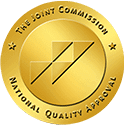
Backed by The Joint Commission which ensures programs adhere to the highest quality of clinical and medical practices.

Full member of the National Association of Therapeutic Schools and Programs (NATSAP), which ensure regulation of programs that serve children and adolescents.
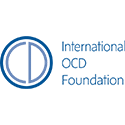
Full Member of the International OCD Foundation, which ensures our staff has access to the most up-to-date OCD treatment practices and research.

This program is proud to be Cognia Accredited. Cognia provides accreditation to schools that have earned recognition for their reputation and high educational standards.
Additional Resources
- Exposure and Response Prevention (ERP) | International OCD Foundation
- About ERP for Teen OCD | International OCD Foundation
- ERP for Children and Teens | Anxiety & Depression Association of America
- Skillfully Building Motivation Toward Exposure Therapy | Anxiety & Depression Association of America
- Obsessive Compulsive Disorder Fact Sheet | American Psychological Association
- What Is Obsessive-Compulsive Disorder? | American Psychiatric Association
- Behavior Therapy Training Institute (BTTI)
About the Authors

Bryan Wilde, LCSW
Executive Director
Bryan is a proud native of Utah. He holds a Master of Social Work degree from the University of Utah, and is a certified ERP therapist through the Behavior Therapy Training Institute (BTTI). Bryan started his therapy career by providing care to adolescents at Island View Residential Treatment Center. Co-founding Pathways to Healing in Bountiful, Utah allowed him to further expand his professional endeavors as a Clinical/Program Director. In addition, Bryan has worked extensively in private practice specializing in working with adolescents and families dealing with mood disorders, anxiety, obsessions and compulsions, trauma, and addiction. His therapeutic approach is comprehensive and emphasizes building strong relationships as the cornerstone for success. Bryan firmly believes in establishing rapport and trust to guide students and families toward realignment. Students at WayPoint describe Bryan as authentic and fair while also recognizing his unwavering dedication as an advocate for their health and well-being. Bryan's exceptional clinical abilities are complemented by his active involvement as an administrator at WayPoint, where he effectively oversees multiple departments. In his leisure time, Bryan enjoys running and spending quality time with his family

Mark Rainsdon, LCSW
Clinical Director
As the clinical director at WayPoint Academy, Mark Rainsdon, LCSW brings a wealth of experience and expertise to our team. Having earned a Master's in Social Work from the esteemed University of Utah, Mark possesses a range of qualifications that distinguish him as a specialist in the field. He has obtained certification as an Autism Spectrum Disorder Clinical Specialist (ASDCS) and is a BTTI-certified ERP therapist. His expertise lies in aiding teenagers struggling with severe anxiety and Obsessive-Compulsive Disorder (OCD), along with students facing neurodiversity-related difficulties. In 2012 Mark got his start in the world of mental health by teaching social skills classes to elementary school students. Since then he has worked in various roles across the mental health field, including as a field staff and primary therapist in wilderness therapy and other treatment programs. Since first joining WayPoint in 2018, Mark has helped countless teens and their families find hope and overcome their mental illness. Outside of work, Mark's favorite things to do include spending time with his family, making things, and soaking up the great outdoors.
Contact WayPoint Academy today to learn how our specialized anxiety treatment program can guide your teen towards a brighter, more fulfilling future.


